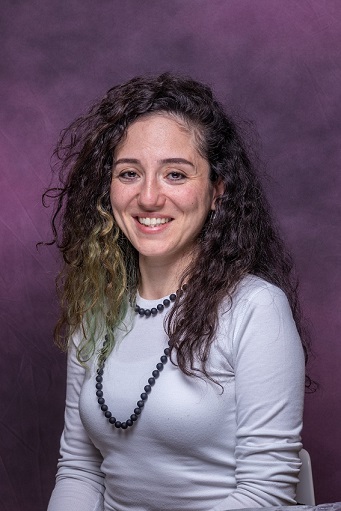- Time: 13:30-16:05, July 14th -18th
- Location: Room 5105, Teaching Building No. 5
- Lecturer: Aybüke Özgün (ILLC, University of Amsterdam)
- Teaching Assistants:
Wenfei Ouyang (欧阳文飞, oywf23@mails.tsinghua.edu.cn)
Yumin Ji (池幽旻, m2e07@naver.com)
- A WeChat group has been created for announcements, room changes, and social events. If you haven’t received invitation, please contact the TAs.
Course Description
Topological semantics for epistemic logic provides an elegant and natural way to model not only knowledge and belief within a (modal) logical framework, but also the evidence upon which knowledge and belief are based. In this course, we investigate various topological approaches to epistemic logic. We explore topological spaces as information structures naturally suited to modeling evidence and its relationship to knowledge and belief. We focus mainly on the recent developments in the field, elaborate on the conceptual arguments behind using topological spaces as formal models for epistemic logic, and study the technical details of relevant (meta)-logical results. Topics to be covered include:
- basic notions in topology and how they relate to important notions in epistemology.
- the interior-based topological semantics for modal/epistemic logic.
- topological evidence models.
- subset space semantics, topo-logic, and their extensions.
At the end of the course, we will provide an overview of recent developments in the field, highlighting open questions and further avenues for investigation.
Background Knowledge
The course will only require background in metalogic and basic modal logic (its syntax, Kripke semantics, some basic results on completeness, and its epistemic/doxastic interpretation). In particular, we will introduce all the necessary topological concepts on the first day. In the course, we will generally focus on technical material but often provide examples, in order to make the material more accessible, and we will also have class discussions about the philosophical issues behind the technical material covered in the course. Students are also expected to have some degree of mathematical maturity and an interest in the themes of the course.
Reading Material for Technical Background
- Modal Logic: Blackburn, P., de Rijke, M., & Venema, Y. (2001). Modal Logic, vol. 53 of Cambridge Tracts in Theoretical Computer Scie. Cambridge: Cambridge University Press.We will use Kripke/relational semantics, normal modal logics, soundness and completeness, finite modal property (please also see the course handout).
- Topology:Engelking, R. (1989). General topology, vol. 6. Berlin: Heldermann Verlag, second ed. (any other topology textbook is also fine)We will employ topological notions such as topological spaces, open and closed sets, interior and closure operators, derived set operator, sub basis, basis, subspace, dense sets, nowhere dense sets, among others (please also see the course handout).
Main References (further references will be provided on slides)
- For a basics of epistemic logic, brief overview and further sources: Rendsvig, Rasmus, John Symons, and Yanjing Wang, “Epistemic Logic”, The Stanford Encyclopedia of Philosophy (Summer 2025 Edition), Edward N. Zalta & Uri Nodelman (eds.), URL =<https://plato.stanford.edu/archives/sum2025/entries/logic-epistemic/>
- van Benthem J., Bezhanishvili G. (2007) Modal Logics of Space. In: Aiello M., Pratt-Hartmann I., Van Benthem J. (eds) Handbook of Spatial Logics. Springer, Dordrecht. https://doi.org/10.1007/978-1-4020-5587-4_5
- Özgün, A. (2017) Evidence in Epistemic Logic: A Topological Perspective. Ph.D. thesis, Universite de Lorraine and University of Amsterdam. URLhttps://www.illc.uva.nl/Research/Publications/Dissertations/DS-2017-07.text.pdf (relevant chapters for each lecture are to be specified)
- Baltag, A., Bezhanishvili, N., Özgün, A., and Smets, S. (2022) Justified belief, knowledge, and the topology of evidence. Synthese 200, 512.https://doi.org/10.1007/s11229-022-03967-6
- Moss, L. S., & Parikh, R. (1992). Topological reasoning and the logic of knowledge. In Proceedings of 4th Conference on Theoretical Aspects of Computer Science (TARK 1992), (pp. 95–105). Morgan Kaufmann.
Tentative Schedule
- Day 1 Motivation and Topological Preliminaries
- Day 2 Topological Models for Knowledge and Belief
- Day 3 Topological Evidence Models
- Day 4 Subset Space Semantics and Topo-Logic
- Day 5 Overview of Selected Topics and Summary

